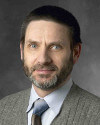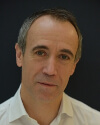Afeka Conference for Vision Restoration
|
|
08:30 |
Networking & Registration
|
|
09:00 |
Welcome Remarks
- Prof. Ami Moyal, President, Afeka
- Dr. Ofer Ziv, Conference Chairman, Afeka
|
|
09:30 |
Keynote
-

Prof. Daniel Palanker
Stanford University, USA
"Prosthetic Vision Mediated by Subretinal Photovoltaic Arrays"
|
10:15
|
--- Coffee Break ---
|
10:45-12:05
|
First Session
- "Modern Corneal transplantation Techniques and Keratoprostheses"
Dr. Yoav Nahum, Beilinson Hospital, Rabin Medical Center, Israel
- "Hybrid Retinal implant for restoration of sight"
Dr. Yossi Mandel, Bar-Ilan University, Israel
- "Background de-cluttering for object recognition in video-based visual prostheses"
Dr. Eli Peli, Professor of Ophthalmology, Harvard Medical School, USA
- "Retinotopic to spatiotopic mapping in blind patients implanted with visual prosthesis"
Dr. Avi Caspi, Chairman of the Department of Electrical and Electronics Engineering at Jerusalem College of Technology
|
| 12:05 |
Keynote

Dr. Serge Picaud
Institut de la Vision, France
"Visual restoration : validations of the photovoltaic retinal prosthesis
and of optogenetic therapy in non-human primates"
|
| 12:50 |
Lunch |
| 13:50 |
Second Session
Moderated round table discussions
- Involving medical stuff in academic vision research
The majority of current research for vision restoration is being performed by engineers collaborating with medical stuff at private companies or company sponsored university projects. When ideas are initiated by medical stuff not involved in those specific projects they do not know how to proceed. The discussion should concentrate of the ways to collaborate between individual medical professionals and the academia in order to support the research of those ideas.
- Image processing for enhancement of visual prosthesis
What are the best ways to improve the perception of low quality images by visual prosthesis? When referring to prosthesis, the subject may be widened for any vision enhancements for the vision impaired. Engineering, professionals in the vision field, as well as patients will share ideas and decide on set of recommendations.
- Natural brain adjustments for adaptation of image from prosthesis
Are there any limitations to what our brain can or should adapt to when a reduced quality image perception is provide as a replacement to natural vision? Is it really necessary to imitate the natural “normal” representation of image or can the brain learn to understand other representations?
- Visually impaired in vision research – reality vs. expectations
A lot is promised to the visually impaired as a result of current progress in technical devices intended to replace normal vision. The consequences are very high expectations of potential candidates for those devices. Unfortunately the current advances in the devices are far less than we would like them to be. The discussion is about how to mediate the difference between reality and expectations without discouraging potential beneficiaries from trying the current devices. What do the potential patients see as a minimum requirement for the devices?
- Medical complications due to implantation operation and engineering requirements
All suggested visual prosthesis devices involve implantation of a device. The implantation location depends on the device and may be on the eyeball, under the skin behind the ear, on the visual cortex, or other places. The engineering requirements in order to operate the device properly may involve complex operation procedures, some never tried before. The discussion is about the required dialog between surgeons and technical researchers in order to achieve a common ground, a design that will satisfy the engineering requirements on one hand, and will be reasonable feasible design for the surgeons on the other hand.
|
| 15:20 |
Discussion |
| 16:00 |
Farewell |